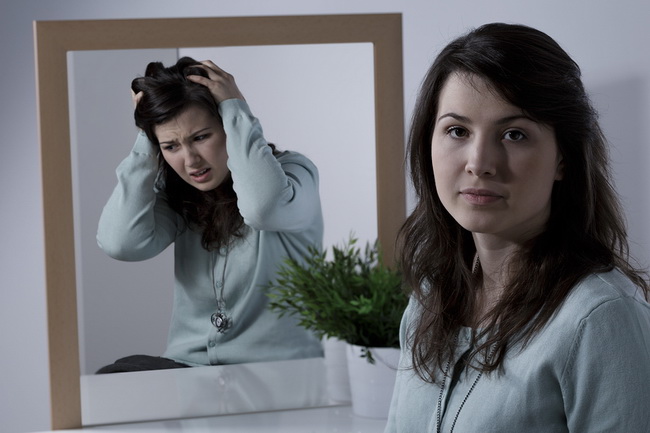- Make It Yourself Lavender Heart-Shaped Bath Bombs!
- 20 Things You Never Knew About “Down There”
- 12 Best Foods For Those Suffering From Arthritis Pain
- 12 Personal Hygiene Mistakes Almost Everyone Makes (Mom Never Told You About #4!)
- 15 Medicinal Plants And Herbs From The Cherokee People
- 12 Mind-Blowing Benefits Of Drinking Coconut Water During Pregnancy
- 12 Outstanding Winter Foods That Won’t Fatten You Up Like A Christmas Turkey
15 Natural Herbs for Those with Bipolar Disorder

Photo credit: bigstock.com
If you or someone you love suffers from bipolar disorder (manic depression), then you know what a difficult disease this is. It varies from person to person, with some having what is considered to be mild episodes, while other experience frequent and life threatening episodes.
If you are looking for alternatives to the typical fare of prescription medications, you will find that for this particular disorder, they are few and far between. Many herbs have been used throughout the ages to treat this problem, but there has been almost no scientific research done in this area. Herbalists will tell you that the most useful herbs are the ones called nervines, and we are listing them here, among a few other natural compounds that many of those affected have stated has helped them personally.
Of all the herbs on the planet, nervines are among the strongest, so they are the most likely to cause side effects or interactions with other medications. Natural does not mean completely harmless. If it is strong enough to heal you, then it is strong enough to harm you if not taken properly or with forethought. If you are taking any prescription medications, or if you are pregnant, nursing, or plan to become pregnant, you should always consult with your doctor before consuming any herbs, especially nervines. Never stop your medication until you have spoken with your physician. Bring a list of the herbs you would like to try and discuss your personal situation and health problems with your doctor before you try them.
The best 15 natural herbs and other natural means of helping those with bipolar disorder are:
1. Black Cohosh
Sometimes called Black Snakeroot. This is a sedative and nervous system depressant and is often used by those with autoimmune diseases due to its anti-inflammatory effects. Black Cohosh has been used by Native American tribes for generations for many mood disorders. It appears to bind itself to estrogen receptors, so it might cause hormonal activity.
2. Passion Flower
This herb has a soothing effect to the nerves, which can help to provide the proper balance of neurotransmitters in the brain. It must be taken daily, however, to obtain the necessary relief you are seeking. Passion flower can also reduce insomnia due to agitation and it is said to provide relief from those feelings of excitement that come during the manic stage of this disease.
3. Damiana
This is a traditional herbal remedy for depression. It’s also thought to have aphrodisiac capabilities. Whichever is true, there does appear to be some type of effect on the hormonal system. It can leave you feeling energized, so it’s important that you consume this when you are on the “down” side of your cycle.
4. Magnesium
Not an herb, but this vital mineral works in much the same way lithium does, but with no health risks. Magnesium is a natural mood balancer and it can help to reduce the symptoms of mania. Magnesium also encourages restful sleep. Many people find that their insomnia and feelings of anxiety disappear when they take magnesium supplements. Although it is difficult for the body to absorb magnesium supplements, they are the easiest to find. Consider adding more magnesium rich foods in your diet as well, including cashews, black beans, Swiss chard, sunflower seeds, pumpkin seeds, and spinach. You can also soak in a bath with 2 cups of Epsom salts at least 5 nights a week or make your own magnesium lotion and use that daily. Find out warning signs of magnesium deficiency.
5. Gingko Biloba
Although this herb is advertised as being able to boost your memory power, this extract from the gingko tree is a powerful antioxidant which is prescribed in Germany for the treatment of dementia. Gingko improves the blood flow to the brain, so it might help those who suffer from bipolar disorder.
Continue to Page 2




























